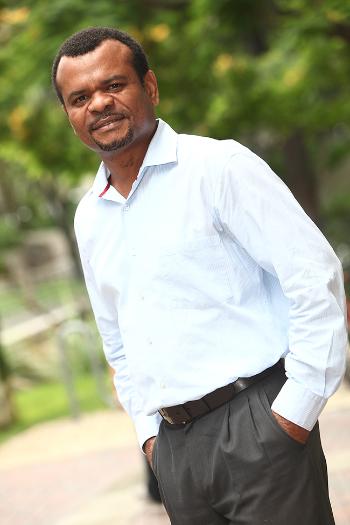Dr. Louis Herns Marcelin, associate professor of anthropology at the University Miami College of Arts and Sciences, has focused most of his research on understanding violence as essential to social life.
As he notes, most scholars see forms of violence in society as discrete phenomena with clear determinants, while others shed light on their (im)morality and their destructive power. “While these approaches are important in helping us make sense of identifiable acts of violence, their randomness and epidemiology,” Marcelin says his work “takes a holistic perspective on the topic, a view that goes beyond thinking of violence as belonging to the realm of the absurd.
Violence, he says, is not an anonomy or outside of what make us humans.
 |
| Louis Herns Marcelin, associate professor of anthropology |
“Instead, violence is foundational of social life and quintessential to power relations among humans. Violence is constitutive of the human condition.”
Starting this summer, Marcelin will take a full academic year of research leave to further explore this theme as a recipient of an American Council of Learned Studies (ACLS) fellowship for his proposal, Democratization Process, Violence, and Peacebuilding in Contemporary Haiti.
As an ACLS fellow, he will work on a book that focuses on violence and human insecurity in post-dictatorship and post-disaster Haiti. The book builds on a series of transdisciplinary, multistage, ethnographic and sociological studies he has conducted in Haiti, where he was born, over the course of 25 years.
His research interrogates the standard categorization and analysis of and community responses to violence. It highlights the unique value of ethnography as a distinctive means to investigate the principles at work in the production and reproduction of violence in sociocultural contexts like Haiti.
Marcelin is aware that this award was not simply for his own work, but the result of thought-provoking collaborations and reflections with UM colleagues and students, as well as other scholars from other parts of the world, including Haiti, South Africa, Brazil, France, and Canada.
“When I found out about this, I was humbled by it,” he said. “What it means is that it pays off to think in collaborative terms. It’s a product of what other people have helped me become. I am saying this because there is more reward in academia when we work collaboratively.”
For this fellowship, Marcelin will work through the Interuniversity Institute for Research and Development (INURED), a Haiti-based institute he co-founded to better integrate various disciplinary tools and perspectives in an effort to assist the people of Haiti.
Marcelin has continued to conduct research in Haiti over the past three decades, more recently expanding the scope of his work to explore how natural disasters, such as the 2010 earthquake and Hurricane Matthew in 2016, affect communities as these are prolonged moments of crises, when violence in all forms is most prevalent.
Despite his focus on the darkest dimensions of the human condition, Marcelin remains an optimist. He says he is able to stomach years of research on violence because of his obligation to understand it and communicate his findings to others through his research.
“Sometimes you cannot sanitize it, ” he said. “It is the ugliness of abject human suffering that I cannot stomach; however, it forces me to look at what people living in these circumstances have in terms of resources and how these resources can be channeled in order to reverse their condition.”
Marcelin’s research goes beyond focusing on victims and/or offenders by exploring unjust structures that enable violence to erupt in the first place.
In addition to his ACLS fellowship, Marcelin also has been awarded the Residency Program at Stellenbosch Institute for Advanced Study (STIAS) in South Africa, a four-month program in South Africa, where he will write several chapters of his book based on a comparative account of the nexus between violence and democracy in two shantytowns, one in Haiti and the other in South Africa.
These two fellowships will allow Marcelin the opportunity to examine sociocultural variations between democratization processes and violence.
“Everything humans do, humans can undo,” he said. “That’s where the philosophy of hope comes into play, the possibility of you overcoming the ugliest phases and conditions in life.”
By Betty Chinea
March 20, 2017

